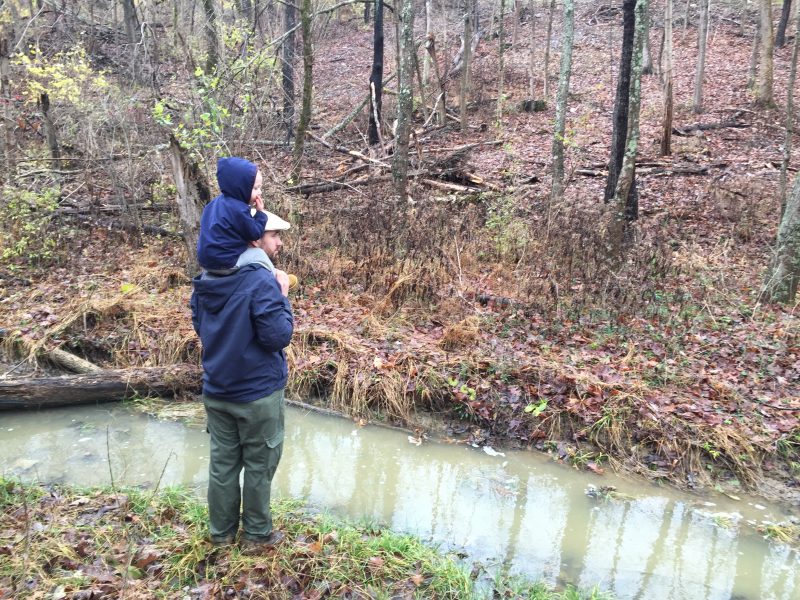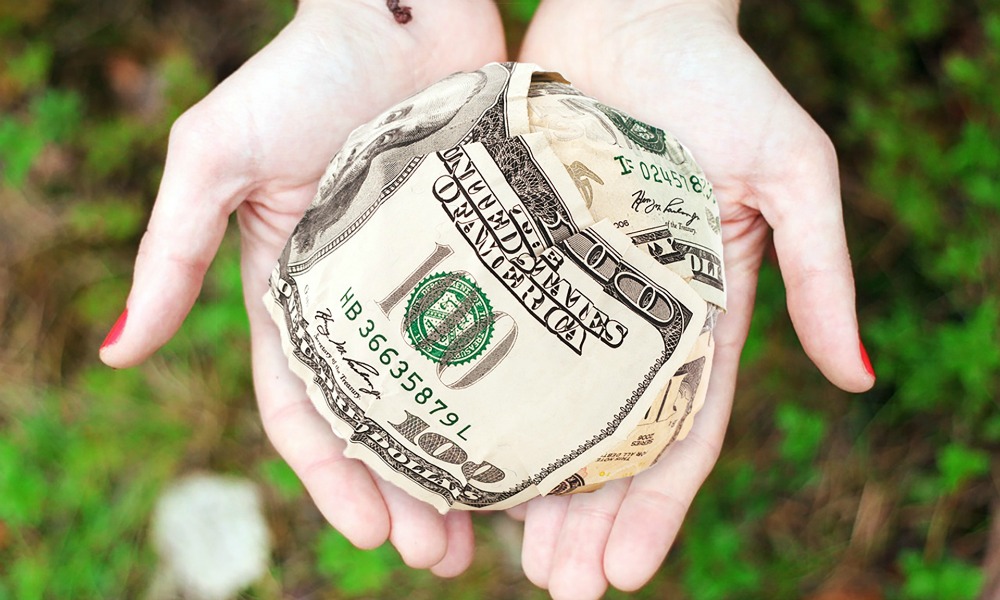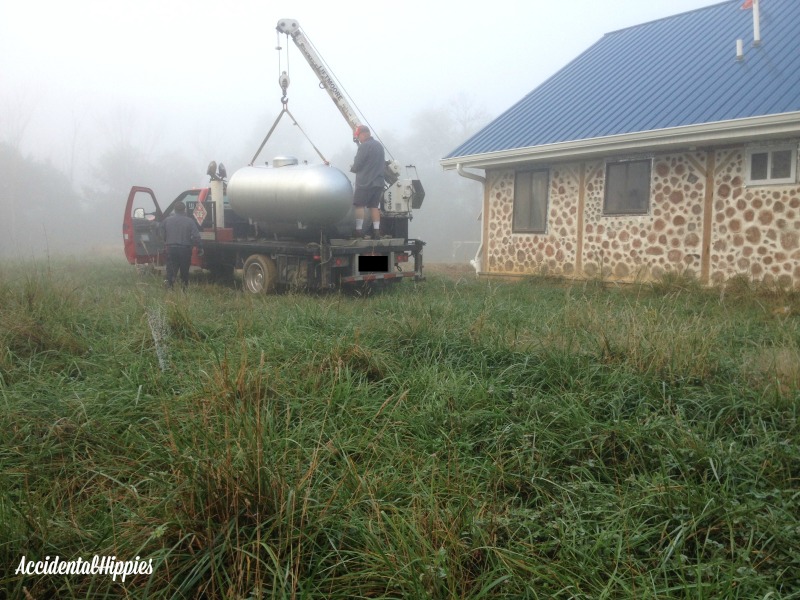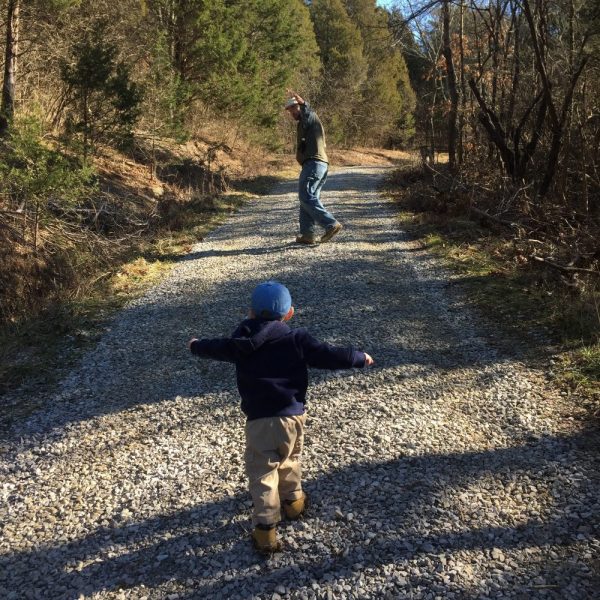Disclosure: I sometimes earn products or commissions from affiliate links or partnerships on my blog. I only recommend products and services I trust to serve you. Learn more.
Buying land is a huge dream for many people. While you might want to buy your perfect spot on this earth and build your forever home, actually doing it is anything but easy. How can you anticipate problems before they happen? What do you need to know to avoid huge headaches down the road?
Our particular experience with buying land had some ups and downs, but we ultimately succeeded. We bought land and built a house! But I got curious about other people’s experiences with buying land. So what did I do?
We asked our followers over on Facebook and gathered up tips from dozens of people who have been there, done that. And trust me, you can’t afford to ignore their advice. When I started compiling the comments from everyone, they all seemed to sort out into one of four categories:
- Evaluating the land itself
- Property rights and tax issues
- Utilities (on-grid vs off-grid)
- Practical matters (finances, logistics, etc.)
Each category has its own cautionary tales, and some are downright horrifying. If buying land is something you’re absolutely set on doing, read to the end to make sure you have your bases covered. You’ll find links to additional resources to help you with your land search.
17 Real Tips From Real People To Buy Land
A. Evaluate the land itself.
Different jurisdictions will have different regulations on this. For example, our county will not issue a building permit if your soil does not pass a percolation test. We had to build a leach field by scraping all of our topsoil before they would grant a permit. Here’s what some of our Facebook followers had to say:
1 – “CHECK YOUR WATER SOURCE.” -Basically, everyone who responded. But it can be tricky. Is there city water? Appropriate well water? A lake or stream? Enough annual rainfall to adequately fill a cistern from your roof?
And more importantly, do you have the access rights to whatever water comes your way? Here’s what one reader had to say about well shares:
“When we first started looking to buy, we found what I was sure was the perfect place. But when we checked on water rights, we discovered it was on a well-share. The monthly payment for the electric for the well pump was divided equally among 4 properties, no matter the usage.
“That would have been all right if all the usage had been fairly equal, but two of the properties were mini-farms, while on the other two properties, one had 100 trees he was irrigating 8 months out of the year using water control heads with output of 4gph. That’s 400gph x 24hours x 240 days a year — that’s over 2.3 million gallons per year just for the trees! That didn’t include horse watering, and household use.
“The other property was a big ag concern. And we couldn’t get anyone to renegotiate the terms. To top it off, we discovered that the well-share wasn’t even listed on the property, so they could have cut us off, and we wouldn’t have been able to do anything about it. Too bad I wasn’t savvy enough in those days to educate myself on cisterns and water catchment. I still dream about that place.” – Denise G.
2 – “For my boyfriend and I, it was a percolation test on the soil– making sure it drains properly! We are able to install our own septic system in the county we are building and we are absolutely counting on us installing the system to reduce cost (we still have to purchase a tank, but thankfully we have a local company to go through!). If the land doesn’t perc, we’d have to hire someone to come in and design a system that would work for our property (there is no city sewer where we will live), which I’m sure is not cheap.” -Emily B.
3 – “DON’T BUY LAND AT THE BOTTOM OF SOMEONE ELSE’S HILL! Groundwater flows downhill, and you will have mud issues ranging from tolerable to knee-deep, boot-sucking muck. Any drainage solutions are expensive, time-consuming, and energy-sapping. If the property has a hill, DO NOT build any structures at or near the bottom. Same reason.” -Robynne C.
4 – “Water rights, property lines, zoning and what type of soil. We didn’t know about the last part and now we own three acres – 2 of which are swamp 90% of the year.” -Alissa R.
5 – “We just moved to a community that used to have a lot of mining in the area. People have mentioned that we should consider sending soil samples in before purchasing.” -Clint H.
6 –“And check the water for chemicals. Even small amounts can render land useless.” -Anna R.
Related Post: 18 Things to Look For In Your Homestead Land
B. Check property rights and tax issues.
7 – “Understand property tax and school tax discounts and look for land currently in production to reduce tax burdens. Talk to a local tax preparer/ financial advisor. It’s obviously partly state-dependent, but it’s very helpful. Look up tax maps/ soil types. My husband spent a dozen years reading and studying permaculture and so far I feel like we chose pretty well.” -Beth B.
8 – “Make sure you own ALL of the rights to the land. A friend bought some land, put in a garden, an orchard arbor for grapes… After 20 plus years the gas company shows up and explained that they owned the mineral rights to the land and would be doing some work on her property. Long story short, the damage and destruction that company did to her garden area, orchards, arbors….caused her and her family a lot of heartache, and forced her to sell her land at a loss. Make sure that you own all the rights to your property, not just some of them.” -Jan D.
9 – “[Find] out about previous agreements (or disagreements) made. Hubby saw the markers and knew what he was looking at so didn’t bother calling to have it checked out. Found out after the fact that we can’t build any permanent structure on the majority of our property and the barn the previous owner built was in violation of right away and judge ruled it could stay but if it’s ever in the company’s way they can come in and tear it down without any warning or anything. I could wake up one morning to strangers on my property demolishing my barn and there’s nothing that can be done about it!” -Ashley H.
10 – “Make sure you check with the township or city to make sure they don’t have rules & regs against what you are trying to accomplish. Building codes, etc. Check the FEMA maps!” -JS F.
C. Utilities vs. Off-Grid Considerations
We knew from the moment we found our property that we’d probably be off the grid. After talking to our local electrical co-op, we learned that just to run a line to the house would be a minimum of $25,000. This was a pretty good incentive to install our off-grid solar power system. Along with that, we installed a rainwater catchment system with a concrete cistern and water filters (a particulate filter for the house and a Berkey for our drinking and cooking water).
But what about internet? Phone service? Propane? And what happens when those companies own property nearby or even have an easement through your property? Here’s what our readers said:
11 – “Internet. We bought in the country but not off the grid. We had to build an internet tower. If you don’t care about internet, great. If you need it for schooling your kids and running businesses…it was upwards of 5k.” -JS F.
12 – “Make sure you know where the utilities are. If you like a piece of land, be prepared to pay out the nose if the utilities aren’t close.” -Ryan J.
13 – “Find out if any companies own land that borders yours. They could build for industry or clear cut.” -Kail C.
14 – “Check to see if gas or high voltage power expansions are planned in the area. Yep, my mistake…” -Anna R.
Related: How We Get Internet Off the Grid
D. Practical Matters
Overall, we love the land we bought but there are some practical matters that make it difficult sometimes. For example, our half-mile driveway presents challenges in the winter and is another ongoing cost and maintenance item. Acreage also presents some interesting challenges in terms of security and trespassers/poachers and the like.
There’s also the issue of building codes and enforcement should you decide to build your home on your land. You need to know before you ever purchase exactly what you can and can’t do legally.
Read our reader advice below, and then make sure to check out these 18 practical things to consider when you’re looking for your perfect homesteading land.
15 – “Budget the cost of a tractor or pickup (for snow removal).” -Beth B.
16 – “Be aware of your transportation needs. 2 miles on a dirt road is ok for us with trucks and snowplows but the people in further than us are stuck in the mud every other day or housebound when a storm dumps 2 feet of snow.” -Kristen Y.
17 – “Don’t be afraid to throw offers out on properties listed for long periods of time.” -JS F.
Related: 6 Financial Tips for Buying Land for Your Homestead
Is it still possible to find good raw land for building a homestead? Yes. But…
You have to go into your search with eyes wide open. Continue your reading with the posts listed below, and subscribe to get a free land shopping printable checklist to help you find your perfect parcel. The checklist is a sample from our upcoming Buying Land Guide. I’m taking the time to talk to real folks and industry professionals to create a better resource for those who are trying to find good land for homebuilding or homesteading.
READ THESE POSTS TO KEEP LEARNING ABOUT LAND:
3 Hard Truths About Buying Homesteading Land (and what to do about them)
6 Financial Tips for Buying Land for Your Homestead
Buying Land: 5 Critical Things to Do Before You Purchase
Financing Your Homestead (even if you’re flat broke)
18 Things to Look For In Your Homestead Land
Check out our homestead progress updates and find out more about our cordwood homestead project here. You should also join us on Facebook, Twitter, and Instagram. I’m always pinning lots of great ideas on Pinterest too! Thanks for reading!





Don’t fall so in love with a property that you overlook issues with it. We did a pro/con evaluation on several properties and rejected several that we really loved at first sight. Don’t let your emotions rule, because the feel good wears off pretty quick when you run into issues.
Lots of good pointers.